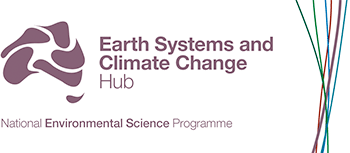Climate weighed heavily on Australians’ minds in 2020, whether we were talking extreme temperatures, drought or the 2019/20 Black Summer bushfires, or climate and air quality impacts like smoke and air pollution.
The Earth Systems and Climate Hub, among other leading research organisations, has been helping to unpack some of the impacts of a changing climate for Australians since 2016.
While many of our stakeholders working in policy and decision-making understand the general importance of climate science, they have told us that they are less certain about how the information is relevant to them, how the climate system works and is changing, and what exactly the climate projections are able to tell them and how this information might be used in decision making and planning processes.
Developing a climate change information toolkit
Early on in the Hub’s engagement, we identified a growing need to empower our stakeholders with the basic climate change knowledge that they would be able to apply in their decision-making. In response, we developed a Climate change literacy training workshop.
The climate change literacy training and toolkit has since been trialled over a couple of years with a range of stakeholders, including World heritage properties in Shark Bay and Gondwana Rainforests, Northern Territory mango growers and Victorian State government. Feedback from workshop attendees has been used to adapt and refine and toolkit into a simple five-step health check for climate impact assessments that will provide stakeholders with a better understanding the training of the climate system, an appreciation of climate change science, and the confidence to find and use climate change information to inform decisions.
What the toolkit includes
The toolkit includes two components:
- A climate change literacy workshop (can be offered in a half or full day) includes surveying the participants to determine the audience needs and, workshop evaluation.
- A climate change impact assessment methodology (can be applied across all sectors) to co-produce climate change information and facilitate its use in decision making.
Case study: Pilot program with the Northern Territory mango industry
In 2019, the Hub trialled the climate literacy workshop, and rapid climate change impact assessment with the Northern Territory Department of Primary Industries and Resources (NT DPIR) to better understand the impact of climate change on mango flowering in the Territory.
The literacy workshop, Making cents of climate change, was developed in response to early stakeholder engagement from mango farmers and primary producers that they did not understand the economic imperative to act on climate change information.
The workshop was well-received with participants rating it highly for relevance and accessibility. Most also indicated that their understanding of climate change had improved as a result of the workshop.
The Hub also conducted a climate impact assessment (climate change health check) working again with the NT DPIR.
The climate change health check involved climate experts from the CSIRO and Bureau of Meteorology (engaged through the Hub), knowledge brokers and communication specialists joining up with horticulture experts from the NT DPIR.
We undertook a collaborative approach from the outset, using a 5-step approach to the impact assessment that ensured we understood the climate variables and timeframes of interest to the mango industry and their information needs.
Through the 5-steps, we used climate change information to explore the possible effects of future minimum and maximum temperatures on three commercial cultivars and three that are in development. The health check resulted in a case study report and summary as well as fact sheets that are available on our website.
Continued roll out of workshops and modules
During 2019 and early 2020, the Hub continued the roll out pilot climate workshops with the Victorian Department of Environment, Land, Water and Planning, the Northern Territory Government, Horizon Energy, and delivered climate change literacy modules to others, including property managers at the Gondwana Rainforests Australia World Heritage Area.
Feedback from participants continued to be incorporated into the final methodology and design of the toolkit to ensure it is fit for purpose.
An activity report which describes the methodology developed for the climate literacy toolkit is available here.
For more information:
Enquiries about using the climate change literacy workshop or climate change health should be directed to the ESCC Hub.
Mandy Hopkins, ESCC Hub Knowledge Broker

